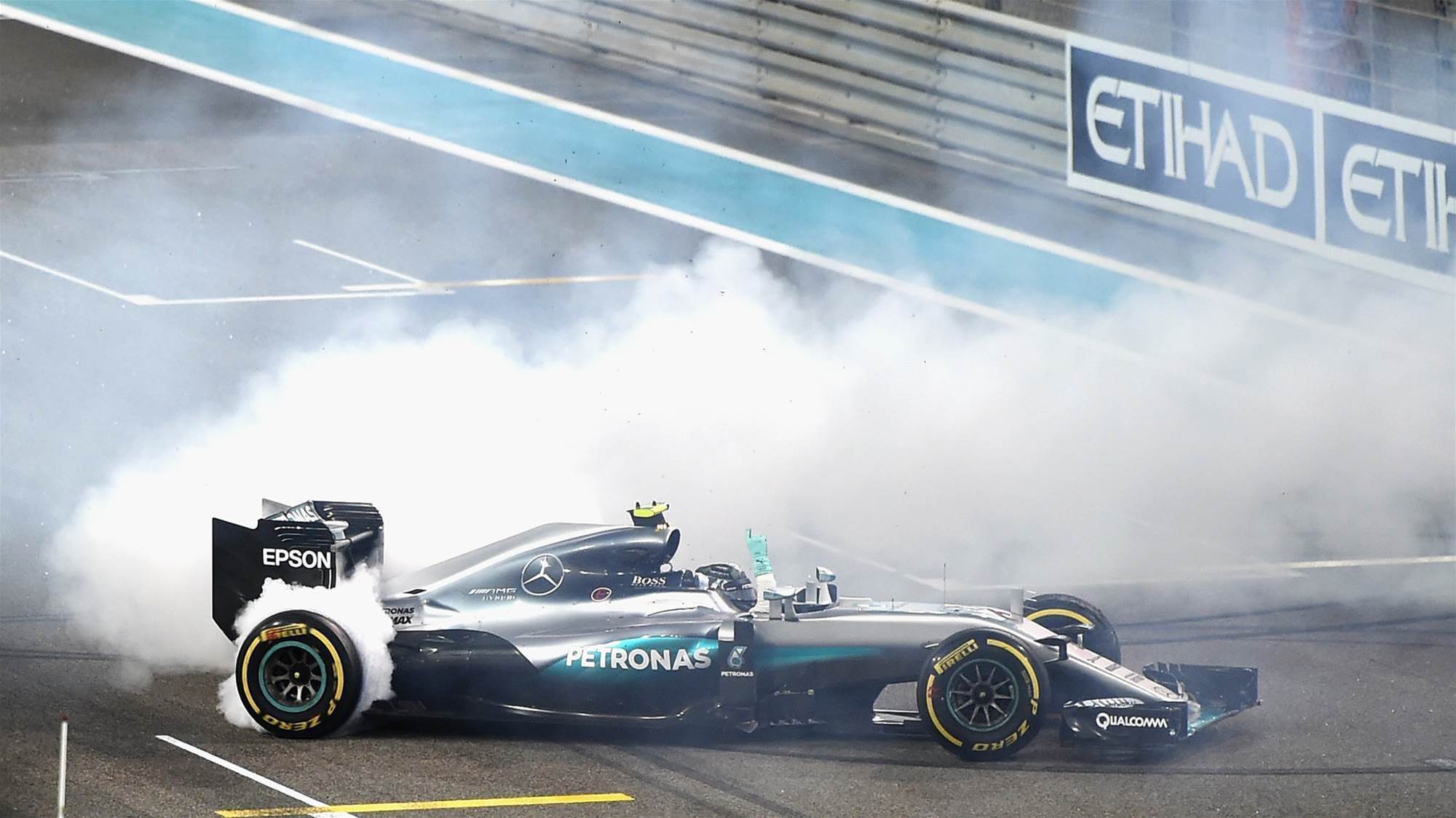Nico Rosberg has been crowned 2016 Formula 1 World Drivers’ Champion after a tense season-ending Abu Dhabi Grand Prix.
Leading Mercedes team-mate Lewis Hamilton by 12 points heading into the title decider, Rosberg only needed to finish third or higher to claim the championship, even in the event of a Hamilton victory.
Hamilton took pole position and duly controlled the race for the entire distance, with Rosberg giving chase.
Hamilton’s title hopes rested on Rosberg either not finishing or falling behind rival drivers from Ferrari or Red Bull. To that end, Hamilton attempted to ‘back up’ his team-mate into the clutches of the pursuing Ferraris and Red Bulls by deliberately slowing his pace.
Hamilton’s strategy did see his team-mate come under pressure from behind, but Rosberg was able to weather a late-race challenge from Ferrari driver Sebastian Vettel to hang onto a second place that saw him clinch the title by five points.
Behind Vettel in fourth place was Max Verstappen, followed by Red Bull team-mate Daniel Ricciardo.
Hamilton scored his fourth win in succession, but in doing so was chastised by his own team for putting a Mercedes victory at risk with his delaying tactics as he pursued his personal goal of winning a fourth world championship.
In a season dominated by the Mercedes pairing, Hamilton ended up with 10 races to Rosberg’s nine. Red Bull Racing was the only other team to win a grand prix in 2016, with one win apiece for Ricciardo and Verstappen.
It was a season characterised by dramatic fluctuations in fortunes between the two Mercedes drivers. Hamilton’s title defence had looked in tatters early on as Rosberg swept to victory in all of the first four races, but it was Hamilton who finished strongly, winning the final four races.
Rosberg’s first world championship win comes 34 years after his father Keke achieved the same feat. Rosberg now joins Damon Hill as the only other driver in the championship’s 66-year history to emulate his father in becoming world champion.

Related Articles
.png&h=172&w=306&c=1&s=1)
New F1 magazine launches in Australia for 2026

Cadillac prepares for F1 debut as new team faces steep climb


.png&h=115&w=225&c=1&s=1)


.jpg&h=115&w=225&c=1&s=1)




